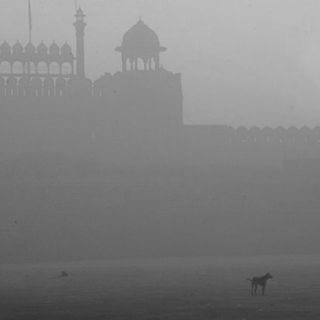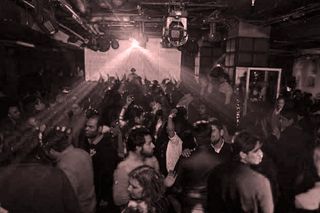
Gurgaon Clubs Deny Entry to Women Without a Husband After Crackdown on Prostitution
Police, clubs are penalizing single women, but the real solution is making sex work safer.

Last month, The Wire published an op-ed questioning why some bars in Mumbai do not allow women entry because the men in those bars get riled up in their presence. Now, single women are being denied entry to several bars and clubs on Gurgaon’s MG Road, according to a report in Hindustan Times.
Many establishments are only granting entry to women accompanied by their husband; women accompanied by friends or partners are being turned away. Individual club owners have implemented this questionable new policy as a response to police raids on MG Road last week, which were allegedly “to check solicitation and immoral trafficking,” HT writes.
When HT reporters attempted to enter several malls on MG Road, they were told only married couples were allowed inside, even though men were entering unchecked. “Are you with your husband? Show me the proof,” one bouncer reportedly said.
“We have barred the entry of single women in our clubs since the arrests were made,” Lalit Singh, who runs a club on MG Road, told HT. “Our business is as good as closed, if the presence of women is made out to be an issue. But we don’t have a choice. We are suffering huge losses.” It’s unclear whether the losses are a result of last week’s police raid, or the business they’re missing out on after barring single women.
“We do not want more trouble. We do not want police to suspect us because of presence of single women. They will raid us and book us for immoral trafficking,” said another club owner, who remained anonymous. According to the club owner, though the police did not give clubs any written orders, they were the ones who directed clubs to instate the policy after the raids.
During the raid last week, the police arrested two club owners, two managers, two dancers, and one bouncer. The reasons for the arrests were not specified. Police commissioner KK Rao, who led the raid, told HT that he did not pass any orders to restrict single women from entering MG Road clubs. “That said, I am well aware that illegal activities take place in such areas which makes them unsafe for women,” he said. “Strict action will be taken against those found indulging in any such activities. We will make these places safe enough for them to be visited by families.”
Naturally, women have responded to the clubs’ new policy with outrage. “I have often been told that soliciting in a very subtle nature happens at MG Road. I have seen a lot of women around. But even if this is the case, it’s ridiculous to bar women. Restricting women’s mobility just doesn’t help in improving any situation,” Tanya Sharma, a theater teacher, told HT. “Instead, these curbs become problematic for single women.”
Unfortunately, it’s beginning to seem like blanket restrictions for the benefit of some cause, but to the detriment of women, are a rule and not an exception. Currently, India is mulling a universal oxytocin ban, which would prevent its misuse in the dairy and child trafficking industries, but potentially allow the deaths of women who need the hormonal drug to stop postpartum hemorrhage. And women are often the ones to pay the price for crimes they did not commit, such as when the aforementioned Mumbai bars penalized women for men who broke out into fights at the sight of them.
This happens because institutions and establishments, consciously or unconsciously, view women as the least valuable commodity. They are, of course, wrong. The clubs on MG Road may have incurred temporary losses due to last week’s raid, but they’re likely risking permanent losses if this policy is in place. If the police did, in fact, direct them to institute this policy, the clubs are victim to truly lazy policing, where a speedy outcome is paramount to an unmarried woman’s right to enter a club.
That desired outcome itself is questionable. ‘Illegal trafficking,’ in this instance clearly does not mean child sex trafficking, given that men are picking up sex workers at nightclubs, which presumably do not allow children entry. Currently, sex work is legal in India, but soliciting it in a public place is not. It’s not that much of a jump to assume these raids were an act of moral policing (or perhaps quota-filling) more than they were an attempt to prevent exploitation.
There may be illicit prostitution rings running out of the MG Road clubs, but if so, the best course of action would be to carefully regulate sex work at the start of the trafficking pipeline, so that abductions and rape do not occur, rather than conduct indiscriminate raids at its end. Sex work, though legal, is in a grey area, largely unregulated, with barely any protections in place for sex workers. Taking comprehensive measures to protect sex workers will go a long way toward making these places “safe enough;” banning single women from clubs will not.
Urvija Banerji is the Features Editor at The Swaddle, and has previously written for Rolling Stone India and Atlas Obscura. When she's not writing, she can be found in her kitchen, painting, cooking, picking fights online, and consuming large amounts of coffee (often concurrently).
Related


From Tennis to Running, Sports Can’t Shake Its Gender Problems
